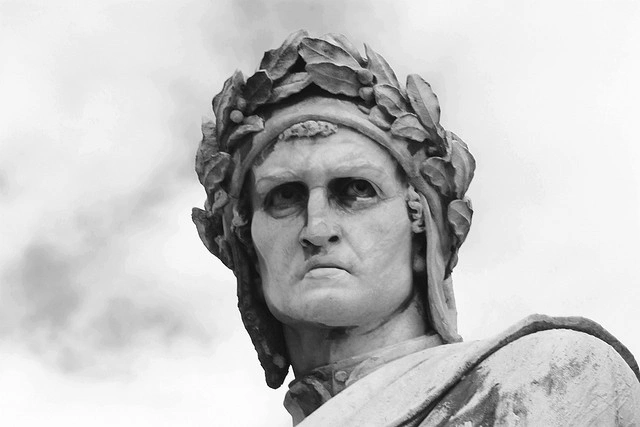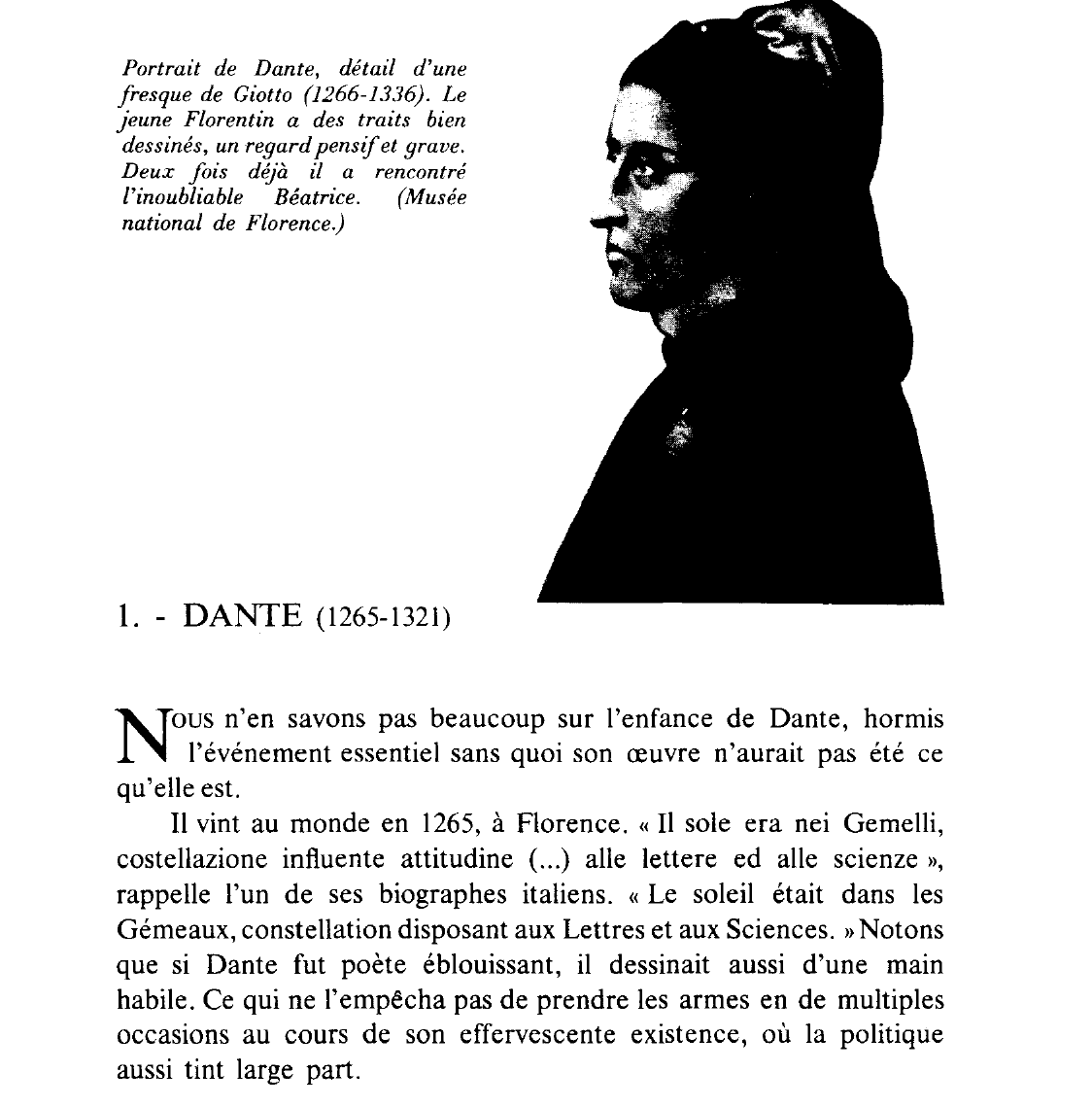Alighieri, Dante
Publié le 15/01/2010

Extrait du document


«
Portrait de Dante, détail d'une
fresque de Giotto (1266-1336).
Le jeune Florentin a des traits bien
dessinés, un regard pensif et grave.
Deux fois d1J"à il a rencontré
l'inoubliable Béatrice.
(Musée
national de Florence.)
1.
- DANTE (1265-1321)
N
ous n'en savons pas beaucoup sur l'enfance de Dante, hormis
l'événement essentiel sans quoi son œuvre n'aurait pas été ce
qu'elle est.
Il vint au monde en
1265, à Florence.
«Il sole era nei Gemelli,
costellazione influente attitudine ( ...
) alle lettere ed alle scienze
»,
rappelle l'un de ses biographes italiens.
« Le soleil était dans les
Gémeaux, constellation disposant aux Lettres et aux Sciences.
)) Notons
que
si Dante fut poète éblouissant, il dessinait aussi d'une main
habile.
Ce qui ne l'empêcha pas de prendre les armes en de multiples
occasions au cours de son effervescente existence, où la politique
aussi tint large part..
»
↓↓↓ APERÇU DU DOCUMENT ↓↓↓
Liens utiles
- DIVINE COMÉDIE (LA), La Divina Commedia, 1472. Dante Alighieri - résumé de l'œuvre
- MONARCHIE (DE LA), Dante Alighieri - résumé de l'oeuvre
- BANQUET (LE), Dante Alighieri, 1265-1321 (résumé)
- QUESTION DE L’EAU ET DE LA TERRE de Dante Alighieri
- Dante Alighieri: Die göttliche Komödie (Sprache & Litteratur).

































